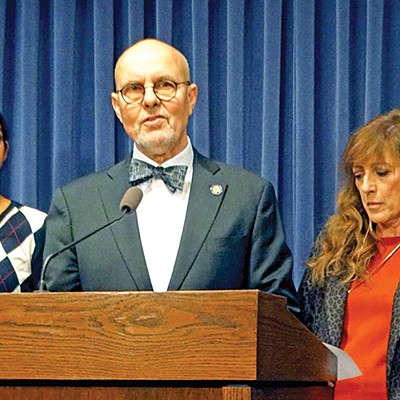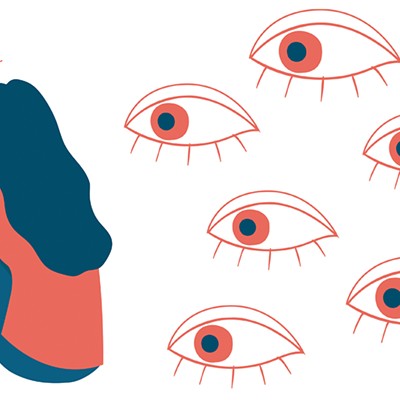Governor JB Pritzker signed into law on May 13 legislation that allows incarcerated individuals and their attorneys access to their Illinois Department of Corrections (IDOC) "master file" in a timely manner.
An incarcerated person's IDOC master file contains information about their criminal background and court history; disciplinary records, job assignments and filed grievances while in custody; and other critical information.
Previously, access to this information was only available through a subpoena or court order, which can be a lengthy process and cause undue delays in court proceedings. Beginning Jan. 1, 2023, IDOC must provide the documents within 15 days of receiving a request.
State Rep. Will Guzzardi, D-Chicago, the new law's author, says that the problem was brought to his attention by attorneys doing pro bono work for incarcerated individuals.
"They would go into a hearing and the [IDOC], with all that information at their fingertips, could say, 'Well, you didn't mention the fact that there was a disciplinary citation against you in 2006, what was that about?' and the individual and their attorneys would be caught off guard because they didn't have the complete record. That seems like a disadvantage," he said.
Guzzardi believes this reform will help even the playing field in the criminal justice system: "We want to help folks and their attorneys have an easier time preparing for legal proceedings involving their case so they can be armed with all the information they need to present as complete a case as they can. They should have this information at their fingertips, just as the [IDOC] has the information at their fingertips."
According to the Illinois Innocence Project, a nonprofit legal organization working to exonerate the wrongfully convicted, this new reform is crucial for their work. Previous delays to access the information contained in these files created great obstacles in attempts to prove clients' innocence.
"We need access to this information to advocate for our innocent clients, whether through the formal means of filing petitions or in negotiations with prosecutors," said Stephanie Kamel, interim director of the Illinois Innocence Project in a statement. "The information in these files enables us, for example, to demonstrate the character of our clients, who nearly always have stellar prison records; or, in an effort to secure their release from prison, help our clients obtain 'earned good time credits' to which they are entitled."
Additionally, Guzzardi believes the new legislation could aid in fueling advocacy campaigns for criminal justice reform.
"The immediate goal of the legislation is to help people get access to these files and documents, but I think the goal here is to create more transparency into the experience that incarcerated individuals have at IDOC so that we can use that to start seeing what's really going on and advocating for the kinds of changes needed," said Guzzardi.
Jennifer Vollen-Katz is the executive director of the John Howard Association, an independent citizens' group monitoring Illinois correctional facilities and advancing reforms needed to achieve a fair, humane and effective criminal justice system. She believes the new law is long overdue.
"I think it's very important we've made this information more accessible to the people most impacted by it," said Vollen-Katz. "The state uses the information captured in a master file to make decisions in a lot of different contexts. People have been hindered for far too long by not knowing what in their file has been affecting them and why. I hope this will lead to more opportunities for more people to participate in programs and opportunities within corrections."
When Guzzardi was working on the legislation, he was surprised to find that the majority of IDOC's documents are still on paper, in countless boxes of files. He and Vollen-Katz are hopeful the new law will coax IDOC into the modern world.
"It's important all these records and files be maintained electronically," explained Vollen-Katz. "In the world we live in today, to rely on paper files is antiquated and difficult and it puts these documents at risk of destruction or loss of information. It's high time IDOC be technologically upgraded to keep and share records the way the rest of the world now does."
As for the law's impacts on future reform efforts, Vollen-Katz expects to see increased accountability in the IDOC grievance system.
"Right now, the grievance system available to incarcerated people in Illinois is very antiquated, dysfunctional and unproductive. The fact that this new law will allow people access to grievance information and received responses will provide a check on that. It by no means is enough change to create a functional grievance system in Illinois, but it's a step in the right direction," said Vollen-Katz.
Annie Fulgenzi is a Springfield-area native and student at Southern Illinois University Edwardsville, majoring in mass communications and pre-law. She is completing a summer internship at Illinois Times.






















